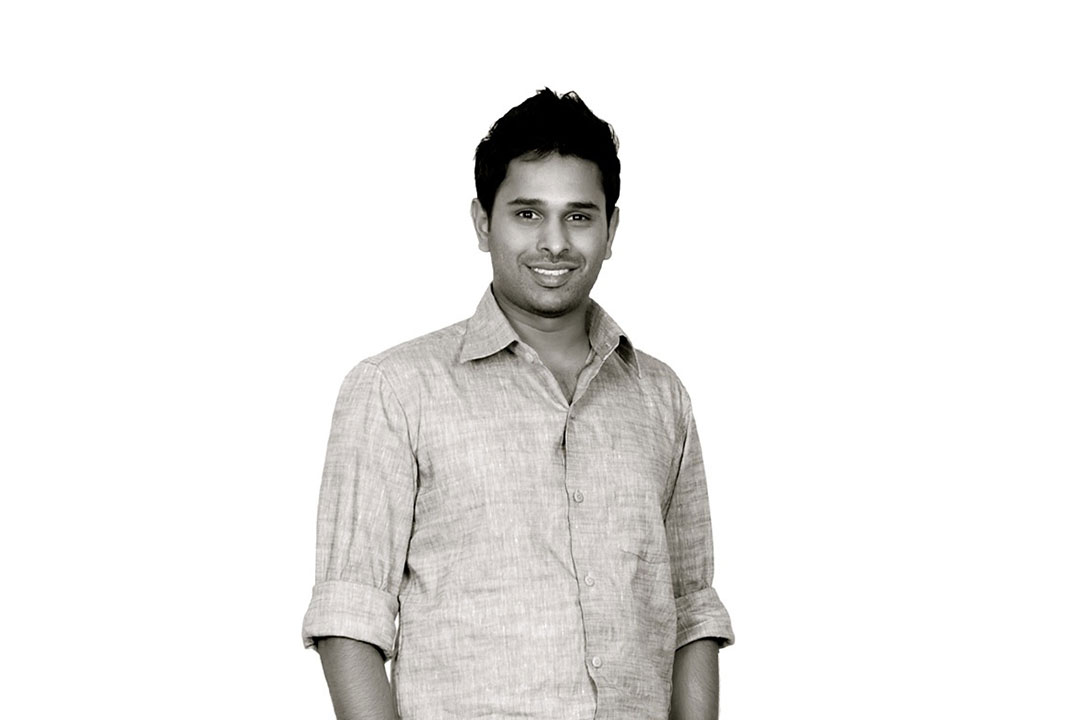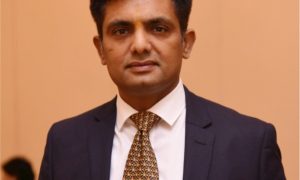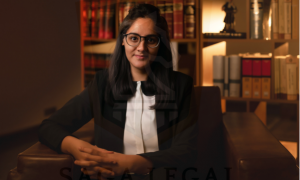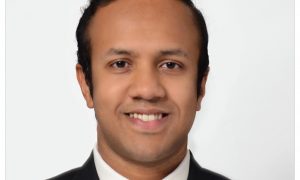Shreyas Tirunagari is a graduate from NUJS, batch of 2011. During his undergraduate years, he interned with the United NAtions, Since then, he has worked under Ministry of Finance, Government of India, as Associate and later as Consultant. He was also a judicial clerk to Justice Dipak Mishra, Supreme Court of India. Following his stint at the Supreme Court, he joined the National Institute of Public Finance and Policy (NIPFP) on the Black Money Report commissioned by the Ministry of Finance in 2011.
He is currently Legal Consultant at Sriram Associates, where he provides legal advice on various sectors including infrastructure, finance, real-estate and energy.
In this interview we speak to him about:
- His time at NUJS
- Being a judicial clerk, the process of application and the responsibilities it entails
- Plans for the future
Why did you decide to study law?
I did not really decide to study law as a career choice. Barring a few options such as Liberal Arts, in the Indian educational set-up students are required to make a choice of professional career at a rather young age. Most colleges are professionally exclusionary and do not permit students to transit from engineering to life sciences and then to law. Well, that being said, I was inclined to understand what bound a society together and so, law was a natural choice. As for how it came to be NUJS, it was a choice of city – Calcutta being steeped in history, culture and as a symbol of liberal development was quite an attraction. If you ask me about it now, I’d say I was mistaken – attending NUJS can and should be a compelling choice. It is a top-3 law school, it has a culture that embodies innovation and enterprise, and it provides a great platform from which to build a career.
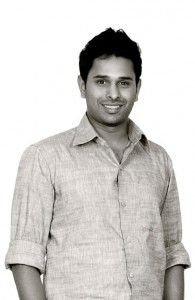 Tell us about life in NUJS.
Tell us about life in NUJS.
One’s time in college is perhaps the most receptive phase of life—after early childhood—to the process of habit-formation in the human life. As such, the habits I formed at NUJS continue to occupy a sweet spot in my everyday life. For one, the library was the only room with an air-conditioning facility and it became habitual to spend time reading there. Since then, reading has become a habit and I continue to devote some time to reading despite moving across very different environments.
That apart, NUJS has a very collegiate atmosphere that provides many opportunities to explore avenues within and outside of the law. During my time, I was also fortunate to have a very inspiring set of faculty members who drove students to understand, introspect and challenge the norm.
Recently, we had a batch Reunion in Delhi where I caught up with some old friends and it led me to reflect on one critical aspect of the growth process–diversity. We had a very diverse student body with students from Punjab, Bengal, Tamil Nadu, Kerala, Shillong, Gujarat, Bihar, M.P. – pretty much all states were covered as were all income, social and cultural classes. This diversity set up a great recipe for embracing new cultures, taking up new initiatives and learning a lot in the process.
Moreover, Calcutta is a city soaked in culture and arts. There are film festivals, book festivals, football games, quaint neighborhoods, some amazing culinary options and a relatively safe and indigenous nightlife. In comparison with the other NLUs, I feel that NUJS is a first among equals in the ‘uniqueness’ of the experience.
Which one has been your most memorable internship?
My most memorable internship was at a United Nations Agency, the World Intellectual Property Organization in New York during the summer before final year. I interned alongside 350 other people from over 50 different countries. In a nutshell, that is why it ranks as the best internship I’ve done during college.
The wide variety of perspectives that were available provided an opportunity to learn from different cultures and critically evaluate the role of one nation vis-à-vis 192 others. Moreover, this was in the summer of 2010 – at a time when the Football World Cup was in full swing. For the first time, I had witnessed the enormity of a platform that was divisive and unifying while being friendly ! Watching a Nigerian Finance Minister and a Belgian Trade Representative let their hair down at the Vienna Cafe, the UN Lounge where all games were being screened, was a sight to behold, indeed!
Beyond the global dimension to this internship, working at the UN was quite professionally challenging. I was assigned the task of covering ongoing negotiations and meetings at different segments of the UN ecosystem – in the morning I would be at the ECOSOC only to be told to rush to the Sixth Committee meeting by the afternoon, following which I would prepare reports, participate in meetings and draft memos to be sent to other UN offices. The nuances of diplomacy are deeply entrenched in cultural, social and professional engagements. As such, observing and participating in diplomatic interactions on the plank of intellectual property led me to see the ‘bigger’ picture within which economics works alongside politics which works alongside law which works alongside business and so on.
Before this internship, I had worked in the securities division of Crawford Bayley, the office of Senior Counsel P.P. Rao, and the legal department of TCS. All of them were strictly legal internships that focused on handling legal transactions – both, corporate and litigation, and so in comparison, this was a truly unique experience. So while I cannot say that this was the best internship, it was the most interesting.
How do internships help in the evolution of a legal profession?
As I mentioned right above, internships are great avenues to evaluate what you read in the classroom in the real world. For example, most of the assigned case-readings for class are primarily Supreme Court judgments. And for a diligent student, it is likely that they will have a reasonable grasp over the case-law of the subject. However, if one were to go practice in the lower courts, it is more often than not other aspects of the law such as legislative instruments and local regulations that will assist one’s arguments. Internships help in understanding how theory fits into the dynamics of the world. It is also an eye-opener.
To analogize in cricketing terms, internships are T20s – fun, short and exciting. Your career is the Test Match – strategically engaging, long and detailed.
You were engaged as a judicial clerk in Supreme Court after your graduation. Why did you make this choice?
Firstly, it is the Supreme Court of India and a place that, especially in these politically and economically volatile times, wields enormous influence in shaping the direction of the country. Even now, the Supreme Court’s recent judgments on 2G, Subrato Roy, the Novartis case and Section 377 have led the charge on financial propriety, global intellectual property and the individual-societal conflict of identity.
In my fourth year of law school, I undertook a policy research project on the pharmaceutical industry, and found that the idea of government policy and processes fascinated me. The fact that millions of people can be impacted by a change in the script of one or two documents is something I that I found incredible. One government order here, one new court decision there, and all of a sudden interest rates are changing, investments are soaring/crashing, crores of rupees are released in pension schemes.
The Supreme Court is one of those places that makes decisions on subjects that affect us daily in our lives – it’s like one of the control rooms in a big ship, and so when I got a chance to be in that room, I just did.
Moreover, let’s not forget that as law students, most of our readings and studying had to do with Supreme Court judgments – it was but a natural progression to understand the judicial process and explore career options thereafter.
Is it difficult to get a judicial clerkship with a Supreme Court judge?
The difficulty of a clerkship I think is two-fold; the first rung of screening is perhaps a preliminary screening for eligibility. Most of the judicial clerks are selected from a handful of law schools such as the NLUs and a couple of others such as ILS and Symbiosis with the rest of the law schools out of the running. This makes the process numerically difficult. If one were to attend a lower-ranked state school, it is probably harder to get a clerkship. That being said, the NLU graduates compete internally with the graduates of similar schools for the clerkship positions. This makes up the second rung of competition.
Within the application process, the first stage is to send in a completed application form along with a CV. After the court receives all applications, the Court conducts a preliminary screening. Following this process, the Court invites applicants for an interview conducted by a panel of three Supreme Court judges. A few weeks after the interview, the Court makes decisions and informs applicants.
While I can’t definitively point out what contributed to my selection, I can only presume it is a combination of one’s academic performance, work experience, as well as the interview. At the time that we interviewed for the clerkship, a few of my classmates with higher grades didn’t make the cut while some with lower grades than me were selected. I think the Court seeks out candidates who they can find a workable fit with – it is very important that the clerk understand the Judge’s methods of working and adapt quickly to fill that role.
What kind of tasks were you given as a judicial clerk?
My day-to-day duties would be flexible depending on the cases, the work for that day, conferences/seminars etc.
There are of course, some tasks that almost all judicial clerks will do, and one of them is handling SLPs.
The way Special Leave Petitions work is that the Supreme Court allows SLPs to be introduced on Mondays and Fridays, and invariably 30-40 such petitions always show up in every Judge’s office. As a clerk, you’re required to review these briefs, and prepare short summaries of facts, arguments and point of issue.
This is a cyclical process – the Friday filings come into office by Tuesday, and the Monday filings come in by Thursday. That gives you two to three days to go through each set, and this cycle is essentially the first pillar of work schedule for most law clerks.
In addition to SLP briefings, there are cases that are being argued at the court and when they move into stages of final arguments, there is a heavy focus on case-briefing, research and preparation for that case. This is the second pillar of work.
Another pointer here is that unlike a law firm/lawyer who is free to hire many juniors, a judge is assisted primarily by his law clerks. And judges usually hire just two clerks. This limitation creates a situation where the clerks have to be flexible in their duties, and the workload keeps fluctuating depending on how many cases are being argued in court. Just as lawyers prepare briefs for filing in Court, judges must prepare judgments and pronounce them. This brings us to the third significant task and perhaps the most exciting one–helping the Judges in researching, editing and drafting judgments. In my case, I did get a chance to work on one constitutional case, and to me, that’s the holy grail – to be a part of cases that will later go into law textbooks.
How do you think the experience of being a clerk is now helping your career?
As I mentioned earlier, the Supreme Court more often than not adjudicates issues that have national significance. Given the nature of the work at the Court, a clerkship is one of the pathways to exploring the depth of an idea, broadening one’s perspective and learning to see ‘the bigger picture’. Other than that, let us remind ourselves that the Judges of the Supreme Court possess a staggering intellectual and strategic strength that is built over years of adjudicating complex issues. I believe in the idea that the people are shaped and influenced to some degree by their surroundings–in this regard, a clerkship is an amazing surrounding to be influenced and shaped by.
Anyone with these goals in mind should pursue a clerkship. This is not to say that a clerkship is useful only for an open-ended exploratory mind; even a fixed and defined career path can benefit immensely from the process of understanding judicial process, understanding a broader context and building an essential skill set. Specifically, as a judicial clerk, you end up constantly reading briefs and so, finding the main point and evaluating it’s strength slowly becomes habitual. And that, I believe is a skill that can be useful both within and outside the courtroom.
You also worked with the Government on financial policy and black money. What was the nature of your work and what is a day’s work like?
It was a unique experience and one that I cherish. For most lawyers, including me, working in a corporate or litigation practice means that the work is focused, defined and there are clear pathways to get to solutions. This project was the exact opposite.
Understanding illicit finance and the black money market means that you have to navigate a lot of uncertainty and dense materials. Let me give you an example – we all know that there’s a lot of corruption, that money gets distributed during elections, that money laundering happens, and so on. Now how do you find out how much money travels to the wrong pockets, and how does it get there? That was my job and my favorite part of my work there was in digging things out from layers and layers of dust.
My team also made my work memorable because it was very flavorful – senior bureaucrats, policymakers, economists, lawyers and statisticians. I had never worked with such a diverse and multidisciplinary team before! All in all, that sort of work led to developing new skill sets, understanding and integrating multiple perspectives. In a nutshell, a day’s work involved lots of researching policies and briefs, discussions, meetings, and a lot of ‘figuring things out’.
Do they take interns? How can one apply?
Yes, they do take interns but a lot of it depends on the requirements of the current projects. If I had to guess, it would be that interns with backgrounds in economics, law and politics are preferred. When they are on the lookout for lawyers though, I am sure the national law schools are on their radar.
What career goals have you set for yourself?
I plan to work on developing an entity that integrates business with policy and thus, participate in the rapid global changes that are taking place. For now, that’s the most I have; as for the achievement bit, I believe in keeping my eyes and ears open, work hard and build opportunity where it arises. I picked up the habit after reading this book. Who moved my cheese? It’s a compact book with lots of wisdom.
Sniff and scurry all the time, and things will figure out a way of falling into place! It is a formula that has worked in the past for me, and I am confident it will work in the future.
What would be your parting message to our readers?
The world is changing and the future will bring exciting developments at a pace and in ways that were previously unimaginable. For example, we have recently developed the ability to understand, modify and change genetic structures. Such developments will fundamentally alter our world. Let’s be a part of the story.

